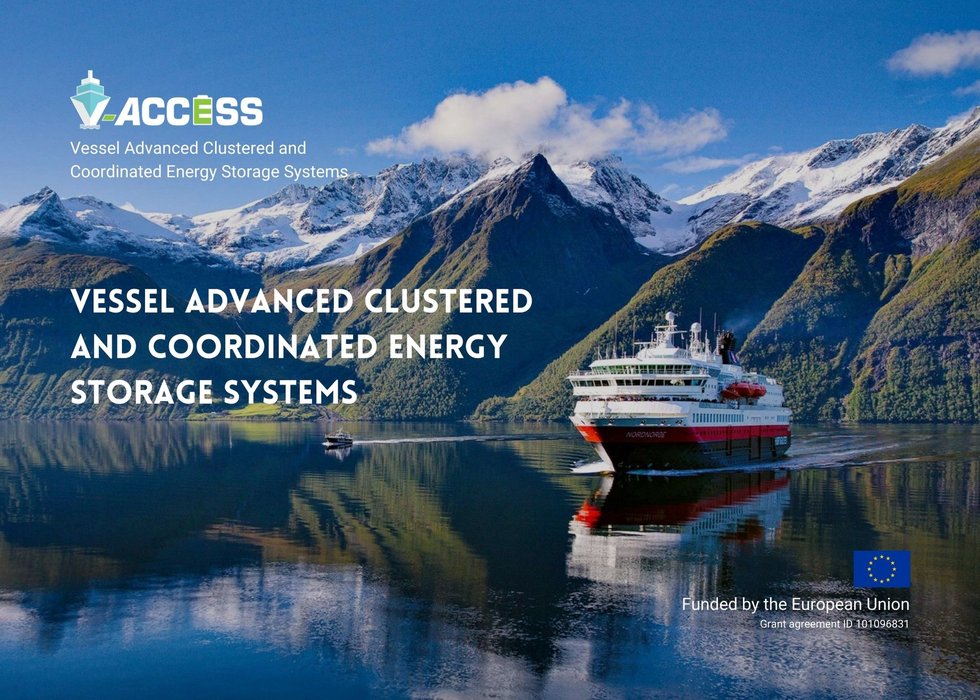
08.08.2023
PRESS RELEASE: New Energy Storage technology: EU Project V-ACCESS gathers 14 industrial and university partners for zero-emission waterborne transport

May 29, 2023 - There are more than 60.000 commercial vessels in operation worldwide which accounts for almost 3% of global CO2 emission and it is widely recognised that substantial CO2 savings can be achieved by integrating some forms of electrifications with batteries charged by shore power (possibly from renewable power sources).
In this frame, innovative energy storage technologies can significantly improve the performance of batteries for of zero-emission waterborne transport, extending batteries lifetime, increasing the overall efficiency, so reducing (R&D and) operational costs.
The EU project V-ACCESS (“Vessel Advanced Clustered and Coordinated Energy Storage Systems”) combines the efforts of 14 international partners aiming to bring together expertise on supercapacitors, superconductive magnetic energy storage systems (SMES), design and control of shipboard power systems, power electronics, lifetime cycle analysis, and ship classification to increase the technology readiness level (TRL) of hybrid storage systems – i.e. combining a battery with either supercapacitors, SMES, or both.
The goal is to integrate a superconductive magnetic storage system and supercapacitors into an innovative DC shipboard microgrid to control flexibly the power sharing between the different energy storage technologies.
V-ACCESS has secured funding by the European Union’s Horizon Europe research and innovation programme for the duration of three years. “We’re paving the way towards Net Zero Vessel focusing on innovative energy storage technology and onboard energy management”, said project coordinator Giorgio Sulligoi from University Trieste in Italy.
“We are working together to integrate supercapacitor and superconductor technologies on board of hybrid and electric vessels by the end of the decade. This European project will contribute substantially to the creation of synergies between the partners to progress towards the objective of decarbonising maritime transport” said the scientific coordinator Pietro Tricoli from University of Birmingham in UK.
Download the press release HERE
https://www.linkedin.com/feed/update/urn:li:activity:7068977983008514048